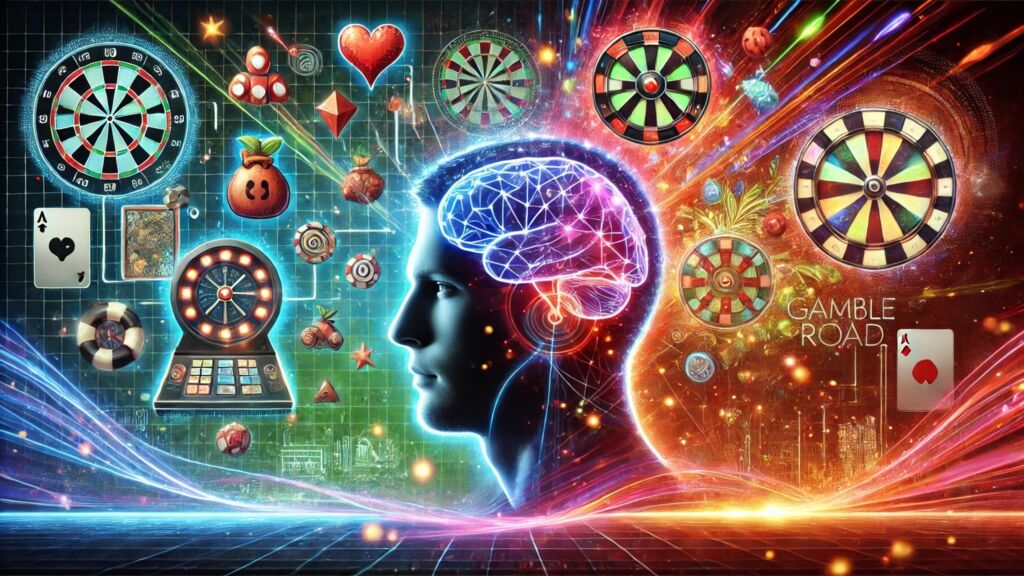Game design has a profound impact on how players think and feel, especially in casinos where it's vital to balance enjoyment with safe gaming. Casino games leverage psychological strategies to create experiences that are thrilling yet can become problematic. This article examines the deep connection between a game's design elements and their psychological effects on players, regardless of their gambling experience.
Decoding the Psychological Triggers in Casino Games
Casino games are carefully crafted using fundamental principles of human psychology to make them more engaging.
- Intermittent Rewards as a Motivational Tool: Inspired by operant conditioning principles from B.F. Skinner, casinos use unpredictable reward systems instead of constant ones, which are more effective in keeping players engaged. Slot machines are specifically programmed to provide payouts at unpredictable intervals, maintaining excitement and anticipation. Near-misses, where symbols almost align but don’t fully, encourage players to continue playing.
- Sensory Rich Environments: Casinos are strategically designed to captivate players by engaging multiple senses. Everything from bright lights to vivid animations and sounds aims to immerse players in excitement, which can make them lose track of time. Personalized game elements further enhance the sense of engagement.
- Psychological Reactions to Loss: Casinos exploit people’s strong aversion to losing more than their appreciation for winning through features like 'double or nothing' bets. Limited-time offers or huge jackpots also create a fear of missing out (FOMO), driving players to play more often.
- The Illusion of Influence: In games of chance, players often believe they have more control than they actually do because of design elements that support this illusion. For example, players might develop betting strategies in random games like roulette.
- Social and Environmental Influence: The design of casinos encourages social interaction, often placing games close together to create a sense of community. Alcohol availability helps lower inhibitions and increase risk-taking, while online casinos simulate these social aspects through multiplayer options.
New Players and the Casino Ecosystem: Temptation and Caution
For new gamblers, the appeal of casinos can be both alluring and deceptive. The excitement of first-time wins can lead to gambling becoming a recurrent source of excitement and reward. Yet, the new players might not fully grasp the complexity of the games. Hence, educating new players on responsible gambling is essential to foster informed habits.
Seasoned Gamblers: Established Patterns and Evolving Dynamics
Experienced gamblers are aware of the nuances of casino games but still susceptible to design tactics. They might develop game-specific strategies that make them vulnerable to particular game designs. Repeated exposure might also desensitize them to regular game stimuli, prompting them to seek more intense experiences. Recognizing these patterns helps in creating responsible gaming frameworks targeting seasoned players.
Analyzing Specific Game Features and Their Psychological Impact
Casino games are designed with unique elements that evoke particular psychological responses:
- Slot Machines: Known for their rapid play and sensory appeal, slot machines are notorious for being engaging and potentially addictive. They make use of familiar themes to draw emotional connections and create a perception of control over the game.
- Roulette: While offering a slower experience, roulette engages players through the suspense and anticipation of watching the wheel. The ability to choose from various complex bets adds to the illusion of control.
- Blackjack: As a game involving both chance and skill, blackjack appeals to strategic thinkers. Decision-making aspects give players a feeling of mastery, though overconfidence can lead to flawed decisions.
- Poker: Poker stands out with its strategic depth and competitive nature, inviting players to engage in bluffing and strategic thinking against other players. However, its competitive essence can also bring psychological challenges.
Designing Games Responsibly: Crafting Engaging yet Safe Experiences
The effects of game design on player psychology are receiving growing attention in the gambling sector. The aim of responsible game creation is to strike a balance between engaging players and protecting at-risk individuals from the adverse effects of gambling. This involves implementing various critical methods:
- Openness and Education: It is essential to offer players detailed and easy-to-understand information about game rules, the odds of winning, and payout details. Such transparency empowers players to make wise choices and prevents potential confusion or unrealistic hopes. It is equally important to prominently feature messages about responsible gambling within games and in gaming venues.
- Player Autonomy and Restrictions: Incorporating features into games that allow players to better manage their gambling activities is key. This includes enabling deposit limits, spending caps, and time constraints. Options for self-exclusion, where players can temporarily or permanently prevent themselves from accessing gambling sites or locations, are also crucial. Features like 'reality checks' that periodically remind players about the time spent and money used during gambling can help manage excessive play.
- Elimination of Risky Game Features: Some aspects of game design are particularly risky. Features like autoplay on slot machines, which quicken gameplay, or ones that promote chasing losses, are areas of concern. The goal of responsible design is to reduce or remove these elements. This may mean slowing the game's pace, decreasing sensory overload, or altering payout structures to depend less on variable and sporadic rewards.
- Tailored Responsible Gambling Measures: The advancement of data analysis techniques makes it possible to customize responsible gambling strategies. Through observing player behavior, operators can detect individuals who might be struggling with gambling and offer specific support and interventions. This might be personalized messages, recommendations for limits, or proactive engagement from gambling support teams.
- Creating Positive Gambling Cultures: Responsible game design includes crafting a supportive gambling culture within casinos and online platforms. This involves training personnel to spot and address gambling issues, ensuring responsible marketing practices, and backing research and educational initiatives.
The Future Prospects of Game Design and Player Psychology
The dynamic relationship between game design and player psychology is poised to grow further. Emerging technologies, like virtual reality (VR) and augmented reality (AR), offer fresh opportunities for captivating and immersive gambling experiences but also raise complex questions about psychological effects and responsible design. VR casinos can create engrossing and captivating settings, potentially amplifying both the enjoyment and the risks associated with gambling. At the same time, the rise of gamification—using game design elements in non-game contexts—could muddy the waters between gaming and gambling, necessitating careful thought about psychological impacts. Continuous research into player psychology, paired with ethical practices and regulatory supervision, will be imperative to ensure game design in gambling evolves to enhance player satisfaction while minimizing potential harm.
In summary, the way games are designed holds significant sway over player psychology. It's important for both players and the gambling industry to understand these psychological influences. For individuals who gamble, this awareness can encourage more informed and responsible gaming choices. For the industry, adopting principles of responsible game design is not only ethically right but also vital for sustaining player trust and ensuring long-term viability. As technology progresses and gambling paradigms continue to shift, maintaining a commitment to player psychological welfare should remain a central focus of innovation in game design.
External Resources:



